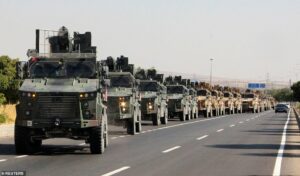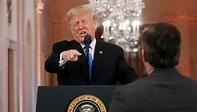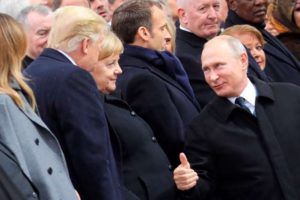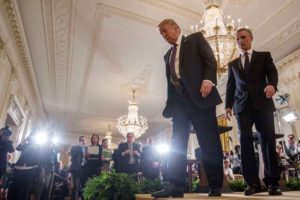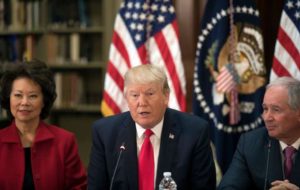
If Donald John Trump has succeeded at anything during his first 100 days as president of the United States, he has managed to wrench Americans’ attention away from some previously grievous international crises.
We’ve instead been fixated on the chaos that reins inside the White House, on the president’s continually clumsy statements about “major, major” conflicts with North Korea and other matters.
But just for the sake of remembering some of the issues that riveted our attention, if only for a brief period, let’s review them:
* Boko Haram. Do you remember when the Nigerian terrorists kidnapped those hundreds of women and girls, holding them somewhere deep in the forest? First lady Michelle Obama made it a serious public cause as she sought to rally international indignation over the hideous treatment.
* Under-age refugees. In 2015, the United States became a magnet for thousands of unaccompanied children fleeing repression in Central America. They came all the way through Mexico and entered this country illegally. We were outraged that so many of these children were being allowed to pass through Mexico; we wondered whether the Mexican government cared to stop the kids from entering the United States. There were calls to round them up and send them back.
* Haiti earthquake relief. The most impoverished nation in the Western Hemisphere was shattered in 2010 by a killer earthquake. The death toll reached into the hundreds of thousands. The world was stricken with horror and grief. President Obama dispatched his two immediate predecessors — Presidents Clinton and George W. Bush — to lead a task force to raise money for Haiti. Then word came back from the island nation that the money wasn’t being spent on restoration, that it was being siphoned off by corrupt government officials.
I ask about these events because there was well-meaning rhetoric from people in high places that the world must not forget these crises. They dominated news cycles for weeks on end. The world must keep them in its sights. It must be relentless in its pursuit to repair the damage done at all levels.
Then the world forgot about them.
These crises have been replaced by many others since then. The Arab Spring, the Syrian civil war, the Iran nuclear deal, North Korea’s saber-rattling, the Islamic State.
The presidential election occurred just a few months ago. Now we’re focusing on just how the new president intends to get his administration in order. If he’s able.
Meanwhile, the Nigerian women are still held captive, the children are still imperiled in Central America and Haiti remains a shattered nation.
We say we still care about these matters. Do we care enough?
